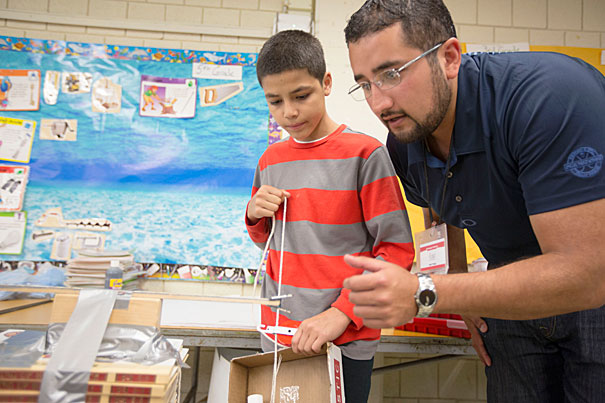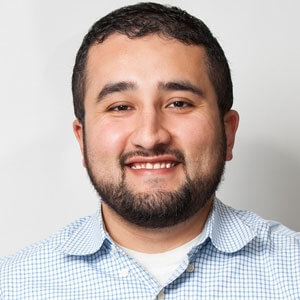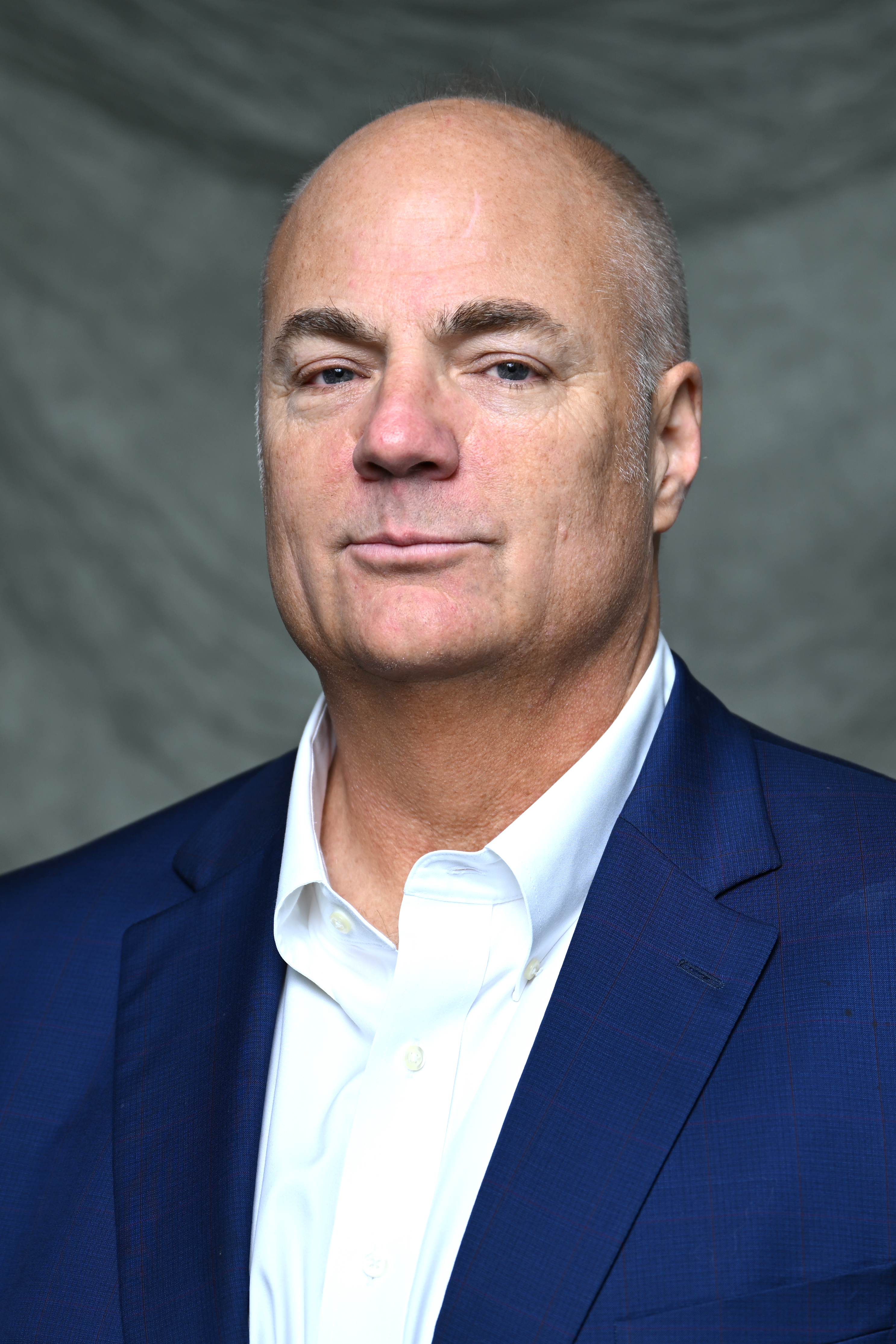News
Jorge Pozo has your back.
At the Harvard School of Engineering and Applied Sciences (SEAS), he’s a research and education specialist. To the U.S. Army, he’s a recipient of the Purple Heart medal.
At 28, Pozo has experienced the close ties between soldiers in a perilous war zone, the creative dedication of engineers in Harvard laboratories, and now the lively elementary school classrooms of Boston and Cambridge, where every smile counts.
Part mentor, part ambassador, Pozo is living proof of the power to overcome hardships and a source of inspiration to younger students who may not be able to clearly see a path to higher education. His story is at once extraordinary and quite ordinary.
First in his family to attend college, and determined to succeed, Pozo began studying chemical engineering part-time at Florida Atlantic University ten years ago, while training full time in the Army.
Even deployment to southern Afghanistan in 2005 did not shake his resolve to finish college. At night, between desert missions on Humvees to search mud huts for enemy fighters, Pozo would sit with a red flashlight and work on assignments for chemistry and calculus—distance-education courses, taken to an extreme.
Late one night, he was solving a calculus problem set while keeping guard, when he heard two rockets approach. “I knew they were coming right at us,” he says.
He shouted, “Heads up!” and ran with a group of others, quickly awakened and armed, toward the source of the grenades to find the attackers. When he returned to camp later, it wasn’t the same: “My homework had exploded. Everything exploded.”
“It was my sixth month in Afghanistan and I thought, you know, academic-wise, I’m just gonna wait,” he says. “It wasn’t the typical ‘dog ate my homework’ excuse. It’s a funny story now. Back then, it was hard.”
The war, of course, would take much greater tolls. Pozo remembers it vividly each spring.
May 19, 2006
He awoke one morning on a Humvee, rolling through the desert with the riffs of AC/DC thumping on headphones beneath his helmet. On this two-week mission, Pozo had been on the gun all night and was an hour or two into a sunrise nap. He was due to go home to Florida in just a few weeks.
Then someone shouted, “They’re running, they’re running,” and to Pozo’s half-dreaming mind, the words took a moment to register. Running meant trouble.
It was an ambush: two vehicles in the convoy were destroyed by roadside bombs. Rocket-propelled grenades rained in on them, and a firefight ensued for 20 or 30 minutes, by Pozo's estimate, before the squad retreated to a nearby base.
Later, when the soldiers returned to that narrow road, the trucks were still burning, but the surroundings were quiet—too quiet. Moments after they arrived, gunfire again erupted from the rooftops of nearby huts. One of Pozo’s friends was shot in the shoulder and evacuated. Then, an ally in the Afghan National Army was gravely injured, but there was no easy way to get to him. Another soldier, 20 years old, ran ahead, ignoring others’ cries to stay back.
“He said, ‘Pozo, I’ve gotta go get him.’ I saw him run through the open space with all the guys shooting, and he was running by himself,” Pozo says. “And that was my brother, so I ran right behind him.”
Now, both under attack, the situation was dire. From behind, Pozo heard a machine gun firing and a third voice: “I’ve got your back. Help him.”
Pozo handed off his gun, lifted the injured man onto his broad shoulders, and ran. Then—he heard it coming—a rocket-propelled grenade struck from behind. Shrapnel exploded. He fell, and he blacked out.
“When I woke up again, it was dead quiet, and I could feel the ground behind me jumping. It was all jumping—we were still getting shot at—so I picked my buddy up again, put him on my shoulder, and kept running.”
What Pozo didn’t know was that the blast had fractured his right fibia, near his Achilles’ tendon. By the time he reached the safety of an empty hut, the break had zig-zagged halfway up his shin.
Picking up
It took three rounds of surgery in Kuwait, Germany, and Boston, but Pozo was eventually able to walk again, ride his motorcycle, and return to normal life.
He served as an instructor for the Reserve Officers' Training Corps (ROTC) at Northeastern University, training another company for deployment to Iraq, while taking classes part-time at the University of Massachusetts, Boston. For several years, he battled post-traumatic stress disorder. Admitted to Northeastern full-time, he continued his studies, majoring in biology, and obtained a coveted internship at Harvard through the Research Experience for Undergraduates (REU) program.
In 2008, he contributed to tumor research in the lab of David Mooney, Robert P. Pinkas Family Professor of Bioengineering. Later, he moved on to study traumatic brain injuries caused by explosions, in the lab of Kevin Kit Parker, Tarr Family Professor of Bioengineering and Applied Physics, who is also an Army Major and a veteran of Afghanistan.
These days, armed with his bachelor's degree, Pozo helps run the entire REU program, recruiting undergraduates from around the world to spend time in a Harvard laboratory. Supporting Kathryn Hollar, director of educational programs, he also helps coordinate a variety of outreach activities for K-12 students in Cambridge and Boston.
To Pozo, the most important thing is to let aspiring scientists and engineers know that Harvard has “an open door”—that opportunities exist.
“We want more female scientists,” Pozo says. “We want more minority scientists. I give talks at community colleges. I give talks in Spanish.”

“A lot of students whose parents have not gone to college find that it’s a different culture from what they were brought up in, so they’re constantly having to make these internal adjustments,” says Hollar. “Jorge has always said to himself, in spite of many things, that this is what he wanted. It was different from what he saw around him, but he's had the courage to pursue it anyway. That’s something I want him to share with younger students.”
“When he's in a K-12 classroom doing a demo, the kids just light up,” Hollar adds. “And so does he.”
Pozo also takes evening courses at Harvard Extension School—without the red flashlight, now—in pursuit of a master’s degree in biotechnology. He still works in a lab, too, helping to develop microfluidics for cancer treatments. And he inspires younger students with his own story, especially those whose education has been interrupted by war, strife, and circumstance.
“They say, ‘You’re at Harvard? How is this even possible?’ Well, that’s the same thing I’m asking myself,” Pozo says. “But you know what? We’re all unique and everyone has a different story. If you fail, take your time, regroup—and then continue. You have to try.”
Cutting-edge science delivered direct to your inbox.
Join the Harvard SEAS mailing list.
Scientist Profiles
Kit Parker
Tarr Family Professor of Bioengineering and Applied Physics

